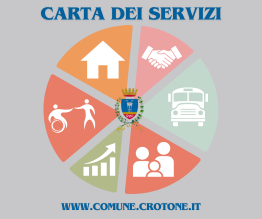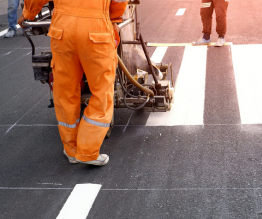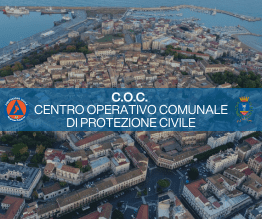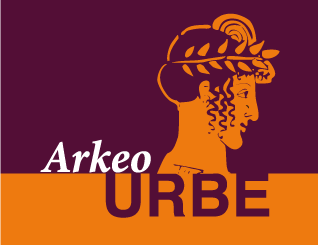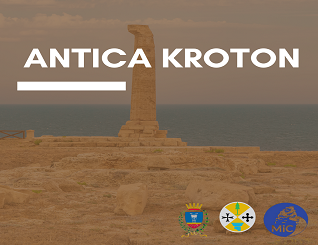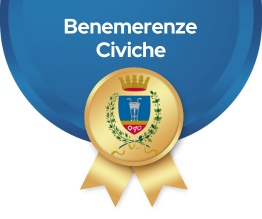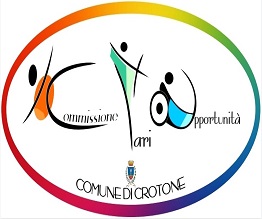Services For Immigrants (English)

- Welcome to Crotone
- Learning in Crotone
- Finding a place to live
- Finding Health care services
- Participating in your community
Brief History of Crotone
In 480 B.C., Croton sent a ship in support of the Greeks at the Battle of Salamis(Herodotus 8.47), but the victory of Locri and Rhegium over Croton in the same year marked the beginning of its decline. It was replaced by Heraclea as headquarters of the Italiote League. Dionysius, the tyrant of Syracuse, aiming at hegemony in Magna Graecia, captured Croton in 379 BC and held it for twelve years. Croton was then occupied by the Bruttii, with the exception of the citadel, in which the chief inhabitants had taken refuge; these, being unable to defend the place against a Carthaginian force, soon after surrendered, and were allowed to withdraw to Locri.
In 295 BC, Croton fell to another Syracusan tyrant,Agathocles. When Pyrrhus invaded Italy (280-278, 275 BC), Croton was still a considerable city, with twelve miles of walls, but after the Pyrrhic War, half the city was deserted (Livy 24.3). What was left of its population submitted to Rome in 277 BC. After the Battle of Cannae in the Second Punic War (216 BC), Croton revolted from Rome, and Hannibal made it his winter quarters for three years; it was not recaptured until 205 or 204 BC. In 194 BC, it became the site of a Roman colony. Little more is heard of it during the Republican and Imperial periods, though the action of one of the more significant surviving fragments of the Satyricon of Petronius is set in Croton.
Around 550, the city was unsuccessfully besieged by Totila, king of the Ostrogoths. At a later date it became a part of the Byzantine Empire. About 870 it was taken and sacked by the Saracens, who put to death the bishop and many people who had taken refuge in the cathedral. Over a hundred years later, Otto II, Holy Roman Emperor, mounted a campaign in southern Italy to drive them out and reduce the power of the Byzantines, but was defeated by a Kalbid darmy near Cotrone on July 13/982. Later on Cotrone was conquered by the Normans. Thereafter it shared the fate of the Kingdom of Naplesincluding the period of Spanish rule of which the 16th-century castle of Charles V, overlooking modern Crotone, serves as a reminderand its successor, the Kingdom of the Two Sicilies, which was conquered by the Kingdom of Sardinia in 1860 and incorporated into the new Kingdom of Italy in 1861.
Main sights
* The Castle of Charles V.
* the Cathedral, originally from the 9th-11th century, but largely rebuilt. It has a neo-classical façade, while the interior has a nave with two aisles, with Baroque decorations. Noteworthy are a baptismal font (12th century) and the Madonna di Capo Colonna, the icon of the Black Madonna which, according to the tradition, was brought from East in the first years of the Christian era.
* The 16th century Castle of Charles V. It houses the Town Museum, with findings excavated in the ancient site of Kroton. Notables are also the remnants of the walls, of the same century, and of various watchtowers.
* The ancient castle built on an island, with accessibility on foot limited to a narrow strip of land, is referred to as Le Castella.
Social customs and Religion
Main Italian customs can be resumed as following:
When you are introduced to someone, it is customary to say, "Hello, how are you?" (Buongiorno, come sta?).
It's also polite:
-to speak using the third singular person, when you are not familiar with someone.
-to shake hands.
-be on time for appointments.
-to be aware that official Italian religion is Catholic.
-to thank someone simply, but always, saying "Grazie".
-to greet someone always saying "Arrivederci" or "Ciao".
There are in Crotone a lot of Christian Churches, disseminated in downtown and in peripheral places.
Other religion praying places don't practically exist.
Opening hours of banks: from monday to friday, h. 08,30-13,00 and 14,45-16,00.
Opening hours of post offices: from monday to friday, h. 08,30-18,00. On saturday, h.08,30-12,00.
Opening hours of other services: generally from monday to friday, h. 08,30-14,00.
Economy of Crotone
Crotone's location between the ports of Taranto and Messina, as well as its proximity to a source of hydroelectric power, favored industrial development during the period between the two World Wars. In the 1930 its population doubled. Unfortunately, the two main employers, Pertusola Sud and Montedison, collapsed. By the late 1980 Crotone was in economic crisis, with many residents losing their jobs and leaving to find work elsewhere. In 1996, a flood dealt a further blow to the city's morale. Since that low point, the city has undergone urban renewal and risen in quality-of-life rankings.* The City of Crotone is the only one in Calabria to be interested by important phenomaena of industrialization..
* Depending mostly on the industrial activities, the whole socio-economic structure of the area has faced a grave disease.
* To overcome the crisis, the Municipality has adopted some instruments directed towards the reinforcement of the economic and productive structure (in Crotone the first Contratto d'Area has been applied) and to the renewal of the urban environment, adopting consultation and participation as the main strategy.
* It's clear that much needs to be done to effectively involve the many institutional local levels, directly, in the process of social integration, in order to develop concerted national and local action plans of social inclusion.
* The concern for social inclusion is central to our planning, but we also understand that "work" is the best form of welfare for those who can work and that a strong economy is needed if we are to achieve our goal of radically reducing social exclusion.
The documents you will need
DOCUMENTS
The documents required for getting residence in Italy are:
* Residence permit,
* Residence card,
* Tax code,
* Registration in the national health service,
* Identity card,
* Report of birth,
* Report of death.
Residence permit
Only foreign citizens with a valid passport or an equivalent document are allowed to enter Italy. The passport must bear the visa issued by the competent consular authorities in the country of origin, specifying the reasons for entry into our country.
To be entitled to stay in the Italian territory all foreign citizens must have the residence permit.
The application to get the residence permit must be submitted to the Police Headquarters of the Province where foreign citizens are living in within 8 working days from the entry.
Documents required to get a residence permit
* 6 photographs
* One 14,62 revenue stamp
* Valid passport (original passport and photocopy of the pages including personal data and entry visa)
* Documentation certifying the availability of a dwelling unit (title of ownership, rent agreement or gratuitous loan, hospitality statement) or, in some cases, statement certifying a suitable accommodation in hotels or private accommodation facilities
* Other documents that may vary according to the motivation for entry and the typology of residence requested.
The duration of the residence permit varies allowing for the typology of visa and reasons for staying in Italy. Residence permit for work reasons is issued after entering into the labour contract; the first declaration is directly submitted to the Single Information Point of the competent Prefecture.
The application for renewal of the residence permit must be submitted to the Police Headquarters within the deadline of the permit itself; renewal is issued upon checking a number of specific conditions.
When the residence permit (the first permit or its renewal) is rejected or revoked the Police Headquarters will inform the party involved. Within the deadline provided for in the rejection to issue the residence permit, a petition can be filed; otherwise the foreign citizen must leave the Italian territory on a volunteer basis.
Loosing job is not a motivation to revoke the residence permit (neither for the foreign citizen not for his/her family members with a regular residence permit); those who loose their job (resignation or dismissal) must register at the Employment Agency and have a 6 month period to find a new job.
Prefettura di Crotone - Prefecture of Crotone
Via Corrado Alvaro Tel . 0962.6636111
Residence Card
Foreign citizens (their spouse or minors) who have been regularly staying in Italy in the last 6 months and hold a residence permit that entitle them to have an unlimited number of renewals, can apply for Residence Card.
Documents required:
* 6 photographs
* Copy of the passport
* Copy of the income statement Modello CUD/ Modello Unico (for self-employment) issued by the employer and related to the previous year, and for domestic work: INPS certificates. Also the cohabitant's income has to be included in the income statement
* Duly registered rent agreement or gratuitous loan
* Fitness of the dwelling unit issued by the Local Health Unit or by the Technical Office of the Municipality.
* Certificate of the criminal records office and certificate of the case list related to criminal proceedings under way
* Registration in the National Health Service
* Documentation certifying the work status
* Certificate of residence and civil status
The residence card has an unspecified date of validity; however, upon request of the party concerned, it must be certified 10 years after its issue. It is an identification document for a period not exceeding 5 years from its issue or renewal. Thanks to this document it is possible to enter the Italian territory without any visa.
Questura di Crotone - Police Headquarters of Crotone
Via Largo Pastificio, 20
Tel . 0962.6636515
88900 - Crotone
Recognition of Education and professional experience outside Italy
You need to call: Ufficio Scolastico Provinciale di Crotone
DIRIGENTE: TEL.0962-968834
UFFICI: TEL.0962-968835
Website:http://csakr.calabriascuola.it
Jobs in Crotone
See "How to Find a Job" Section
Starting your own business
The Chamber of Commerce provides immigrants or immigrants' firms with administrative services, including:
* Registration in the Register of Companies
* Registration in the Register of Handicraft Companies
* Registration in the Register of Shopkeepers (REC)
* Registration in the Register of sales agents
* Registration in the Register of Business agents (brokers (mediators?)
* Registration in the Register of surveyors and experts
* Certification of car repair shops
* Certification of cleaning companies
* Certification plant installation companies
Bread-making and grinding activities
Camera di Commercio di Crotone - Chamber of Commerci of Crotone
P.zza Castello
Tel. 09626634213
Child care
Report of birth is a compulsory declaration for all children born in Italy.
The report must be submitted within 10 days from the date of birth - both to the Municipality where the child was delivered and to the Municipality of residence of the child's mother - or within 3 days to the Health Management of the Hospital where the child was delivered.
The report can be submitted by:
* The child's father or mother (by both of them if they are not married)
* The physician or obstetrician or another person who provided his/her assistance during the delivery
Documents required:
* Valid I.D. card
* Certificate of assistance during delivery
* Consular declaration (only if the father is abroad) .
NOTE (IMPORTANTE): A declaration issued by the consular authority of the country of origin must be submitted at the same time, specifying whether the father can acknowledge the child, which citizenship and surname must be assigned to him/her. Without this declaration some problems might arise above all related to the child acknowledgement by the father and the assignment of the correct child's surname.
It is advisable to report the child's birth to the country of origin as well.
The report of birth must always be submitted also if his/her parents are citizens without regular documents.
Ufficio di Stato Civile - Registry Office
Via Settino
Tel 0962 921111
Your rights in the work place
Your rights in Italy are the same of Italians.
Help for employers
See "How to Find a Job" Section
Finding a school for your children
The Italian school system provides for 9 year compulsory education (from the first standard in the primary school to the first class of the high school).
Day Nursery From 3 months to 3 years
Kindergarten From 3 to 6 years
Primary school From 6 to 11 years Compulsory education (5 years)
Secondary school From 11 to 14 years Compulsory education (3 years)
High school grado Over 14 years Compulsory education (1st year
Attending primary and secondary school is free of charge. For enrolment directly apply to the school.
To obtain facilities related to day nursery and kindergarten school fees, school cafeteria and transport, the ISEE certification must be submitted (this certification is issued free of charge by the Centri Autorizzati di Assistenza Fiscale (CAAF) (Authorised Centres for Fiscal Advisory)
Centro Servizi Amministrativi - Centre for Administrative Services
Via Saffo( Provveditorato agli Studi)
Tel. 0962965375
CAAF CISL - ANOLF ( Associazione nazionale oltre frontiera )
Via Carrara,6 - Crotone
Tel. 0962/22190
CAAF CGIL
Via Pantusa, 32 Pal. Messinetti - Crotone
Tel. 0962/902121
CAAF UIL
Via Torino,20 - Crotone
Tel. 0962/901725
CAAF CISAL
Learning Italian
You need to call: CISL - ANOLF ( Associazione nazionale oltre frontiera )
Via Carrara,6 - Crotone
Tel. 0962/22190
CGIL
Via Pantusa, 32 Pal. Messinetti - Crotone
Tel. 0962/902121
UIL
Via Torino,20 - Crotone
Tel. 0962/901725
Renting a house
Information on first-reception facilities, houses and dwelling units, public and private buildings, change of residence and address.
First reception facilities
The Caritas Diocesana of Crotone provides different services aimed at assisting immigrants. These incluse:
A. First reception facilities and short-term accommodation of foreign citizens in hotels having an arrangement with the Caritas Diocesana upon request of the parish churches or Public Bodies
B. Standing accommodation at Ciro', Strongoli and Isola di Capo Rizzuto.
C. The First-Reception Centre of S. Anna di Isola Capo Rizzuto also provides the following services: language and cultural mediation, coordination of entertainment activities and provision of legal advisory to potential asylum seekers.
Caritas Diocesana Crotone - S. Severina
Sportello Immigrati Caritas
P.zza Duomo
Tel. 0962.25715
By private residential buildings it is meant houses and dwellings units owned by private citizens and made available on the market. All foreign citizens with a regular residence permit can enter into a rent agreement.
Buying a house
By council-house residential building it is meant any dwelling units owned by the Municipality and other public bodies that can be allocated to those who meet the necessary requirements.
On a periodical basis the Municipality publishes a notice for allocating these dwelling units to be rent. The notice illustrates which are the requirements to submit the application to be allocated the dwelling unit. .
Following an accurate scrutiny of the applications a list is published that regulates the allocation of the council-houses.
Ufficio Casa - House Office
Via Torino, n°10
Tel. 0962921577
Where to find a house
To find a house for renting it is sufficient to apply to a real estate agency or look up estate advertisements in the newspaper.
Housing customs
talians usually take care of their houses. They expect their neighbours to take care of their houses. Good relationship are welcomed.
Rights and responsibilities of tenants
In order to be valid the rent agreement must be written and recorded in the Registry of Deed. If the contract is valid
* Both parties (real estate owner and tenant) have to comply with what provided for in the agreement;
* The owner cannot ask for a rent amount higher than what provided for by the agreement and law;
* Owner and tenant may be granted any tax relief provided for by law.
As the procedure to enter into and renew a rent agreement may be quite complex it is possible to be supported by a trade union.
The owner must notify the rent agreement to the local public police.
When hosting or giving accommodation to foreign citizens (relatives as well), a written notice must be submitted to the local public police within 48 hours; the notice shall include the personal data of both the host and guest.
Agenzia Territoriale delle Entrate - Territorial Tax Agency
Viale Stazione ( palazzo Datel)
CISL - ANOLF ( Associazione nazionale oltre frontiera )
Via Carrara,6 - Crotone
Tel. 0962/22190
CGIL
Via Pantusa, 32 Pal. Messinetti - Crotone
Tel. 0962/902121
UIL
Via Torino,20 - Crotone
Tel. 0962/901725
Shelter for women
The family advisory bureau is a social-health service open to everybody
Women are provided with the following services :
* obstetric- gynaecologic health care,
* assistance to pregnancy (courses to prepare to delivery and birth; courses to prepare to become parents); assistance to termination of pregnancy;
* advisory for psychological and social problems involving couple relationship, parents-children relationship, pregnancy, delivery, sexuality, separation or cruelty to a member of the family.
To arrange an appointment go to the Family Advisory Bureau or make a phone call. For the provision of the services listed above a fee has to be paid (except for assistance to pregnancy, termination of pregnancy and delivery). The request by the general physician is not required.
When you are ill
The National Health Service includes facilities and services that guarantee health care to all Italian and foreign citizens, without any discrimination as to their treatment.
All citizens regularly staying in Italy with residence permit for work or family reasons, for political asylum, humanitarian reasons, application for asylum, waiting for adoption or custody, or for citizenship must register in the National Health Service at the Provincial Health Unit (ASP).
For registration the following documents are required
* Residence permit
* Tax code
* Residence self-certification
Upon submitting the documentation, it is necessary to choose a general physician amongst those registered in the area of residence. Upon finalisation of the procedure a provisional certificate is issued.
When a child is ill
If foreign citizens have children: all children with residence or domicile in the municipalities of the Provincial Health Unit of Crotone are entitled to be registered with a paediatrician (compulsory registration until they are 6 years old). From 6 to 14 children can be registered - upon their parents' request - both with a general physician and with a paediatrician. When they reach 14 - if still registered with a paediatrician - their name will be officially cancelled; their parents shall then apply to the ASP and choose a general physician.
Emergencies
Also irregular foreigners, not holding a residence permit, are entitled to urgent out-patient and hospital treatments in the event of disease and accident, and to preventive medicine.
The Health Service guarantees:
* Protection of pregnancy and maternity
* Protection of minors' health
* Vaccinations and interventions of international prophylaxis
* Prophylaxis, diagnosis and treatment of infectious diseases.
The Body (hospital, advisory bureau, out-patients' department) the foreign citizens applies to for the first time, issues a specific 6 month valid declaration/STP code (Temporarily present Foreign Citizen) that does not constitute a registration in the National Health Service. This code is used for statistical purposes and to charge the reference Consulates/Embassies with the care expenses. In the event of proven indigence, care is guaranteed without any expenses, except in the cases when also regular foreign citizens and Italian citizens have to pay a given amount of the expense incurred into
The law forbids health facilities to report the presence of irregular citizens to the police.
All citizens with a regular residence permit and not included in the list of those with a compulsory registration in the National Health Service can:
* Underwrite a private insurance policy, recognised in Italy, covering maternity and risk of disease and accident
* Register on a volunteer basis in the National Health Service, paying an annual fixed fee, that varies according to the typology of residence permit.
Psychological support
In addition to the services provided to all citizens, the ASP of Crotone provides immigrates with a number of specialist services
Specifically it provides the following services:
Health care to Italian citizens emigrated abroad and to foreigners who are members of Italian families
Non-EU foreign citizens with insurance coverage
Health care to foreign citizens without any health coverage
Irregular citizens
Health care provided at the First Reception Centre of S. Anna
ASP di Crotone - Provincial Health Unit of Crotone
Hospital "San Giovanni di Dio"
Via Bologna - Crotone
Tel. (centralino) 0962-924111
(Mental health and psychological support for migrants is an important issue that tend to be often ignored and some EU countries have few services and if so they are not well disseminated).
Are you pregnant ?
Useful information for women: family advisory bureau, termination of pregnancy, maternity.
7.1 Family advisory bureau
The family advisory bureau is a social-health service open to everybody
Women are provided with the following services :
* obstetric- gynaecologic health care,
* assistance to pregnancy (courses to prepare to delivery and birth; courses to prepare to become parents); assistance to termination of pregnancy;
* advisory for psychological and social problems involving couple relationship, parents-children relationship, pregnancy, delivery, sexuality, separation or cruelty to a member of the family.
To arrange an appointment go to the Family Advisory Bureau or make a phone call. For the provision of the services listed above a fee has to be paid (except for assistance to pregnancy, termination of pregnancy and delivery). The request by the general physician is not required.
7.2 Termination of pregnancy
Pursuant to the Italian law pregnancy can be terminated:
* under any circumstances, within 90 days from conception
* also after 90 days from conception only if the mother's life is seriously at risk because of the pregnancy or the unborn baby has malformations that constitute a risk for his/her physical or psychic health.
Women who want to terminate their pregnancy have to apply to a physician of the family advisory bureau of the Provincial Health Unit (ASP) of Crotone.
Authorities cannot expel pregnant women without residence permit for the whole period of pregnancy and in the 6 months following delivery. They are entitled to a residence permit for medical care issued by the Police Headquarters.
7.3 Maternity
Pursuant to the Italian law pregnant women (also when they are irregular foreign citizens) are entitled to health care and free of charge pregnancy-related services. As soon as their pregnancy is confirmed women have to send the medical certificate certifying their pregnancy:
* to their employer
* to INPS (National Social Insurance Agency)
Women cannot be dismissed because of their pregnancy.
ASP di Crotone - Regional Health Unit of Crotone
Consultorio - Family Advisory Bureau
Via Giovanni Paolo II
Tel. (centralino) 0962-924111
Italian associations
Comune di Crotone - Assessorato alle Politiche Sociali
Municipality of Crotone - Councillorship to Social Policies
Laboratorio Territoriale
Piazza della Resistenza
Tel. 0962/921418
Website: www.comune.crotone.it
e_mail: lechiarasalvatore@comune.crotone.it
Caritas Diocesana Crotone - S. Severina
Sportello Immigrati Caritas
Via Raimondi, 20
Tel. 0962.25715
CISL - ANOLF ( Associazione nazionale oltre frontiera )
Via Carrara,6 - Crotone
Tel. 0962/22190
CGIL
Via Pantusa, 32 Pal. Messinetti - Crotone
Tel. 0962/902121
UIL
Via Torino,20 - Crotone
Tel. 0962/901725
Volunteering
You need to contact: SV Aurora, Website: www.csvcrotone.it.
info@csvcrotone.it
Participating in elections
Ufficio Elettorale - Electory Office
Via Settino
Tel. 0962921111
For info: aloisiogiorgio@comune.crotone.it
